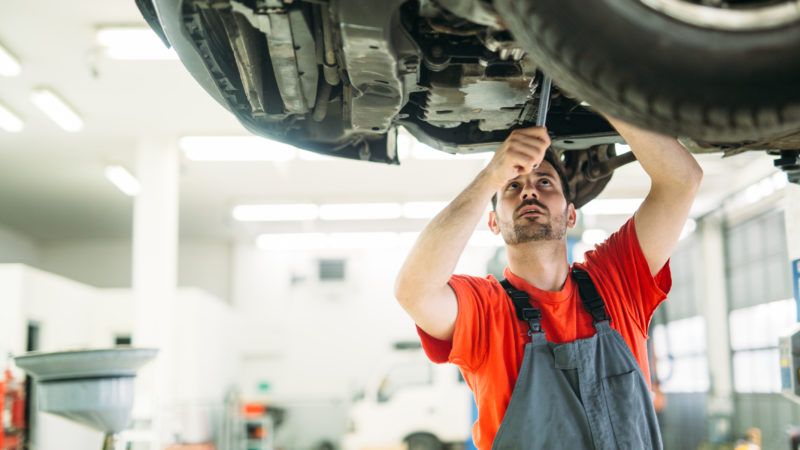Massachusetts Voters Affirm the Right To Repair Your Own Car
The most expensive ballot initiative campaign in Massachusetts history ended with a resounding victory for property rights.

The most expensive ballot initiative campaign in Massachusetts history ended with a resounding victory for property rights as voters approved the so-called "right-to-repair" ballot initiative.
With more than 96 percent of precincts reporting by Wednesday afternoon, nearly 75 percent of voters had approved Massachusetts Question 1. The initiative's passage means that car manufacturers will be required to provide vehicle diagnostic data to consumers and independent mechanic shops. Voters in the state approved a similar right-to-repair ballot measure in 2012, but this year's election closes a loophole that auto manufacturers had been using to skirt the requirements established by that earlier vote.
The state's existing law—which became the basis for new national standards implemented by the auto industry in 2014—required that vehicle diagnostic data was made available via an open platform. In short, that means that if you own a Toyota, you don't have to go to a Toyota-affiliated repair shop to find out why your "check engine" light is on. Any repair shop can plug a device into any car and read the data.
But the earlier law exempted wireless data transmitted via a car's telematics system. Increasingly, car manufacturers have been relying on telematics to transmit crucial data, potentially leaving independent repair shops in the dark. The new ballot initiative closes that loophole and requires wirelessly transmitted data to fall under the same open platform rules starting in 2022.
What might seem like a technical adjustment to a pretty uncontroversial rule, however, turned into a major political battle in the state. The Massachusetts Right To Repair Coalition, a campaign group formed by independent mechanics and national car repair chains like Auto Zone and O'Reilly Auto Parts, dumped more than $24 million into the race. The Coalition for Safe and Secure Data, a group backed by Ford, General Motors, Toyota, and other car manufacturers, spent more than $26 million opposing the initiative.
Much of the campaign centered around sensational accusations that the initiative's passage would allow cars to be remotely hacked for nefarious reasons. Even the National Highway Traffic Safety Administration waded into the fight, warning in a letter to lawmakers in July that Question 1's passage would create "an incredible amount of danger."
Even though there are "some genuine concerns that increasing access to a car's data could set the platform up for cybersecurity vulnerabilities," Reason's Scott Shackford explained last month, "that's an argument about being careful with technological development, not an excuse for depriving consumers of access to the data produced by the vehicles that they own."
Consumers should have the right to control the data created by the products they own—and that's true not only for automobiles. Consider the outcome of this expensive ballot initiative fight in Massachusetts to be one more small victory for freedom on an Election Day where that was an under-the-radar trend.


Show Comments (30)